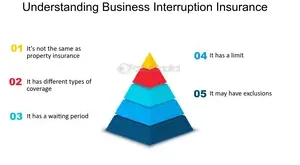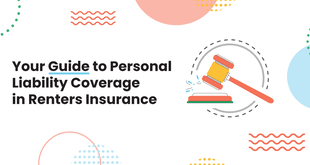Commercial property insurance is a fundamental component of risk management for businesses, offering protection against various risks that can affect physical assets. This article explores the importance of commercial property insurance, what it covers, and key considerations for selecting the right policy to safeguard your business assets effectively.
Importance of Commercial Property Insurance
Protection Against Property Damage
Commercial property insurance provides financial protection for your business’s physical assets, including buildings, equipment, inventory, and furnishings. It covers damages caused by perils such as fire, theft, vandalism, windstorms, and certain natural disasters. This coverage ensures your business can recover quickly from property damage without facing significant financial losses.
Coverage for Business Interruption
In addition to property damage, commercial property insurance often includes coverage for business interruption. This compensates for lost income and operating expenses if your business operations are temporarily halted or impaired due to property damage. It helps maintain financial stability and continuity while repairs are underway.
Liability Protection
Commercial property insurance may also include liability protection for third-party claims of bodily injury or property damage occurring on your business premises. This coverage extends to legal defense costs, settlements, and judgments, protecting your business from financial liability in case of accidents or injuries involving visitors or customers.
Mortgage and Lender Requirements
If your business property is mortgaged or financed, lenders typically require you to carry commercial property insurance as a condition of the loan agreement. This ensures that their financial interest in the property is protected in case of damage or loss, reflecting the importance of insurance in maintaining compliance and financial stability.
What Commercial Property Insurance Covers
Building Coverage
Commercial property insurance covers the physical structure of your business property, including the building itself, as well as permanent fixtures such as plumbing, electrical systems, and HVAC (heating, ventilation, and air conditioning) systems. It provides reimbursement for repair or replacement costs due to covered perils.
Business Personal Property
This coverage extends to business personal property, including equipment, machinery, inventory, furniture, and other physical assets essential to your business operations. It protects these assets against damage or loss caused by covered perils, ensuring you can replace or repair critical items to resume business operations promptly.
Business Interruption
Business interruption coverage compensates for lost income and additional expenses incurred if your business operations are interrupted or suspended due to property damage or loss. It covers ongoing expenses such as payroll, rent, utilities, and temporary relocation costs, helping your business weather the financial impact of a disruption.
Extra Expense Coverage
Commercial property insurance may include coverage for extra expenses incurred to minimize business interruption or expedite the resumption of operations. This includes costs for temporary relocation, renting equipment, and expediting repairs or replacements to mitigate further financial losses during a disruption.
Choosing the Right Commercial Property Insurance Policy
Assess Your Property Risks
Evaluate the specific risks faced by your business property, such as location-based risks (e.g., weather hazards, crime rates) and property-specific vulnerabilities (e.g., age of building, condition of equipment). Assess the potential financial impact of property damage or loss on your business operations.
Understand Policy Limits and Exclusions
Review the coverage limits, deductibles, and exclusions of commercial property insurance policies. Understand which perils are covered and which are excluded, as well as any limitations on coverage for certain types of property or incidents. Ensure the policy aligns with your business’s risk tolerance and financial capabilities.
Consider Additional Coverage Options
Consider adding endorsements or riders to your commercial property insurance policy to address specific risks or enhance coverage. This may include coverage for sewer backup, earthquake damage, outdoor signage, valuable papers and records, and business income from dependent properties.
Compare Policies and Insurers
Research multiple insurance providers specializing in commercial property insurance and compare their policies. Evaluate factors such as coverage options, premiums, deductible amounts, and the insurer’s reputation for financial stability and claims processing. Choose an insurer with experience in insuring businesses similar to yours and a track record of reliable service.
Review and Update Regularly
Regularly review your commercial property insurance coverage to ensure it remains adequate as your business evolves and property values change. Update your policy to reflect renovations, expansions, or acquisitions that affect your property’s value or replacement cost. This proactive approach helps maintain comprehensive protection against property-related risks.
Common Misconceptions about Commercial Property Insurance
Myth 1: General Liability Insurance Covers Property Damage
General liability insurance primarily covers third-party claims of bodily injury or property damage resulting from your business operations, products, or services. Commercial property insurance is specifically designed to cover physical damage or loss to your business property and assets, including buildings and equipment.
Myth 2: Commercial Property Insurance is Only for Large Businesses
Commercial property insurance is essential for businesses of all sizes, including small and medium-sized enterprises (SMEs). Protecting your business property from unexpected perils and disasters is critical for maintaining financial stability and continuity, regardless of the size or scale of your operations.
Myth 3: Commercial Property Insurance is Too Expensive
The cost of commercial property insurance varies based on factors such as the value of your property, location, construction materials, occupancy type, and coverage limits. Compared to the financial consequences of property damage or loss without insurance, commercial property insurance is generally considered a prudent investment in protecting your business assets.
Conclusion
Commercial property insurance is a vital risk management tool that provides essential protection for your business’s physical assets against unforeseen perils and disasters. By understanding the coverage options available, assessing your property risks, and selecting the right policy, you can safeguard your business’s financial stability, continuity, and long-term success. Regularly reviewing and updating your commercial property insurance coverage ensures it remains effective against evolving risks and changing business needs, providing peace of mind and resilience in managing property-related risks.
 kisskh kisskh | Asian Dramas & Movies
kisskh kisskh | Asian Dramas & Movies









